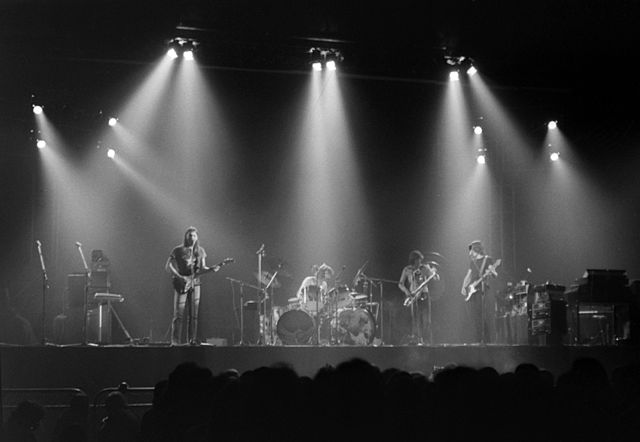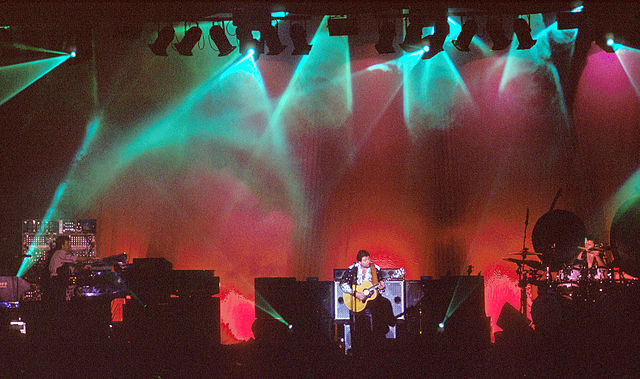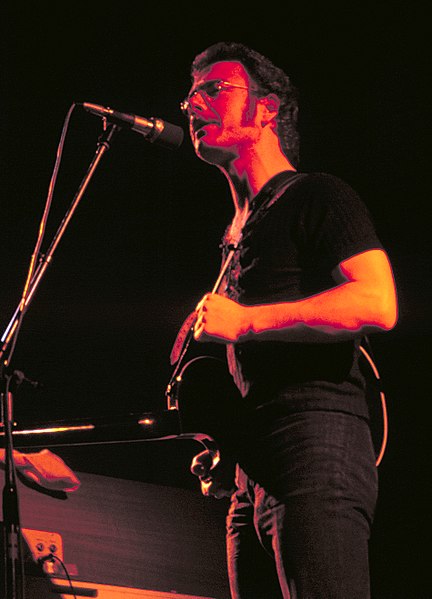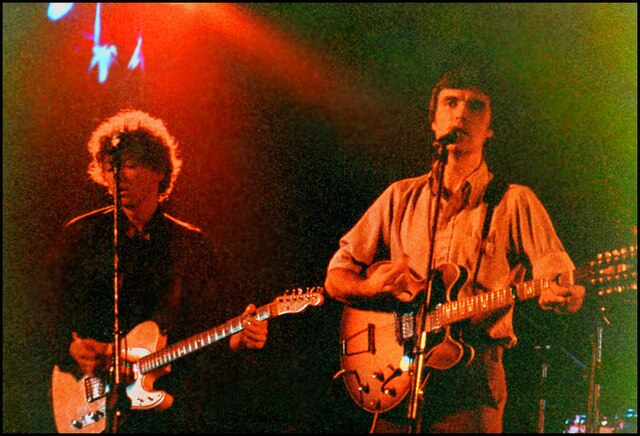Rock in Opposition or RIO was a movement representing a collective of progressive bands in the late 1970s united in their opposition to the music industry that refused to recognise their music. It was initiated by English avant-rock group Henry Cow in March 1978 when they invited four mainland European groups to come to London and perform in a festival called "Rock in Opposition".
Flyer for the 1st RIO festival, 12 March 1978, The New London Theatre, London. The ticket below the flyer reads: "FIVE ROCK GROUPS THE RECORD COMPANIES DON'T WANT YOU TO HEAR."
Poster for the 2nd RIO festival in Milan, Italy, between 26 April and 1 May 1979.
Progressive rock is a broad genre of rock music that primarily developed in the United Kingdom through the mid- to late 1960s, peaking in the early 1970s. Initially termed "progressive pop", the style was an emergence of psychedelic bands who abandoned standard pop traditions in favour of instrumentation and compositional techniques more frequently associated with jazz, folk, or classical music. Additional elements contributed to its "progressive" label: lyrics were more poetic, technology was harnessed for new sounds, music approached the condition of "art", and the studio, rather than the stage, became the focus of musical activity, which often involved creating music for listening rather than dancing.
Pink Floyd performing The Dark Side of the Moon (1973), the best-selling album of the entire progressive rock period.
Emerson, Lake & Palmer were one of the most commercially successful progressive rock bands of the 1970s. They are seen here performing in 1992.
King Crimson's Robert Fripp believed that the prog movement had gone "tragically off course".
Talking Heads' Jerry Harrison (left) and David Byrne, late 1970s






